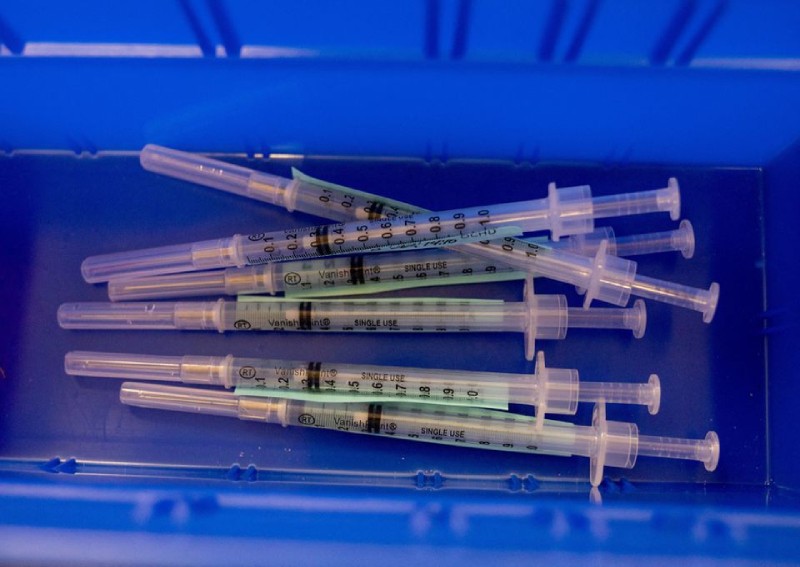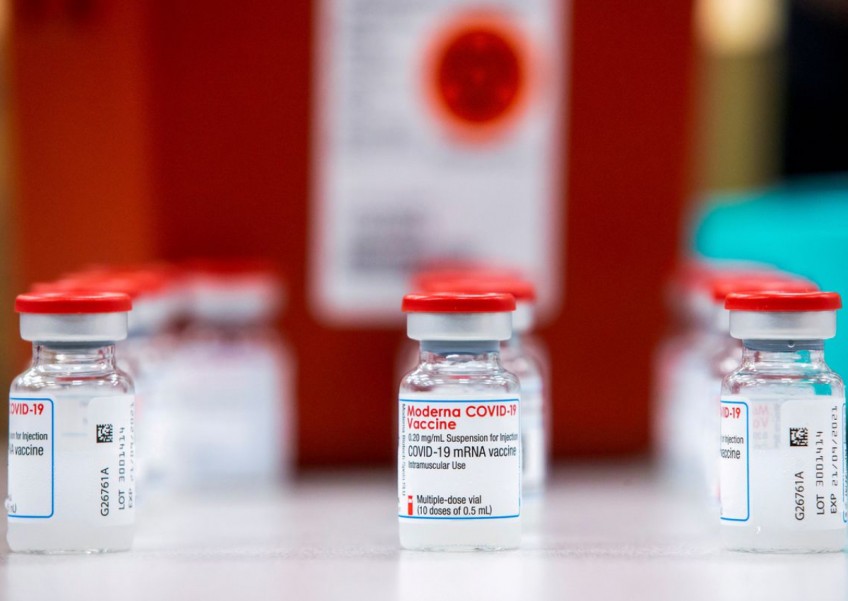US CDC recommends broad use of updated Covid-19 vaccines


The US Centers for Disease Control and Prevention (CDC) director on Tuesday (Sept 12) signed off on broad use of updated Covid-19 vaccines approved by the government - covering ages six months and up - as the country prepares to start a vaccination campaign within days.
The final recommendation from director Mandy Cohen comes after a panel of advisers to the agency voted 13-1 to recommend the shots made by Pfizer and partner BioNTech SE as well as Moderna.
They did not choose to target the shots at specific high-risk populations as some experts have suggested, and other countries have recommended. The shots are part of a push by public health officials to align the next Covid-19 vaccines more closely with the actual circulating variant of the virus, much as annual flu shots are designed.
The recommendation differs from those in most European countries that have issued guidance. This month, the European Centre for Disease Prevention and Control (ECDC) said vaccination programs in EU countries should prioritise people aged 60 and older as well as other vulnerable groups.
In Germany, booster shots have been targeted to these groups, while the British government's vaccine committee said only adults 65 and older and some other categories will be offered the shot as they are the most likely to benefit.
US CDC panel members said simply recommending the vaccine for everybody outweighed complications created by tailoring recommendations more precisely.

"I'm strongly in favor of a universal recommendation," panel member and professor at Harvard Medical School Dr Camille Kotton said. "Let's do away with Covid-19 as best we can by prevention of disease through vaccines."
The CDC advisers met a day after the US Food and Drug Administration (FDA) approved updated Covid-19 vaccines made by Pfizer and its German partner BioNTech as well as by Moderna for people ages 12 and above, and authorised them for emergency use in children ages six months through 11 years.
Pfizer and Moderna have said shots can roll out in coming days and the CDC said they will be available later this week.
Novavax's protein-based shot is still under review by the FDA and a recommendation for the same is expected to be in line with the FDA's decision.
Formulating vaccines to target the latest variants of the ever-evolving coronavirus has been a challenge for public health officials globally since the pandemic began in 2020, with some variants more worrisome than others. Variants circulating the most widely in the US now are subvariants of what is called the XBB lineage of the virus.
[[nid:646961]]
The updated shots are monovalent, or single-target vaccines, aimed at what is called the XBB.1.5 variant, as requested by the FDA.
"I do think that a broad boosting strategy makes sense," said Caitlin Rivers, a senior scholar at the Johns Hopkins Center for Health Security in Baltimore, adding that while the virus was not causing as many hospitalisations and deaths as before, it is still circulating.
Rivers added she was curious to hear the committee's recommendation for young men, "because we do see that, in rare cases, young men can develop myocarditis or related effects", referring to a condition in which inflammation develops in the middle muscular layer of the heart wall.
The rate of myocarditis after receiving booster doses in adolescent and young adult males are lower than that observed after the primary series of shots, CDC official Megan Wallace said at the meeting.
She said the data is limited because of the fewer number of booster doses given out and added that longer intervals between updated doses may also have an impact on the myocarditis rates in this population.
Covid-19 infections and hospitalisations have been rising in the US, Europe and Asia but remain well below previous peaks. Deaths are relatively low in the US - reported at around 2,000 last month - though the country has experienced 1.1 million Covid-19 deaths since the outset of the pandemic.
ALSO READ: Moderna, Pfizer say updated Covid shots generate strong response vs newer variant